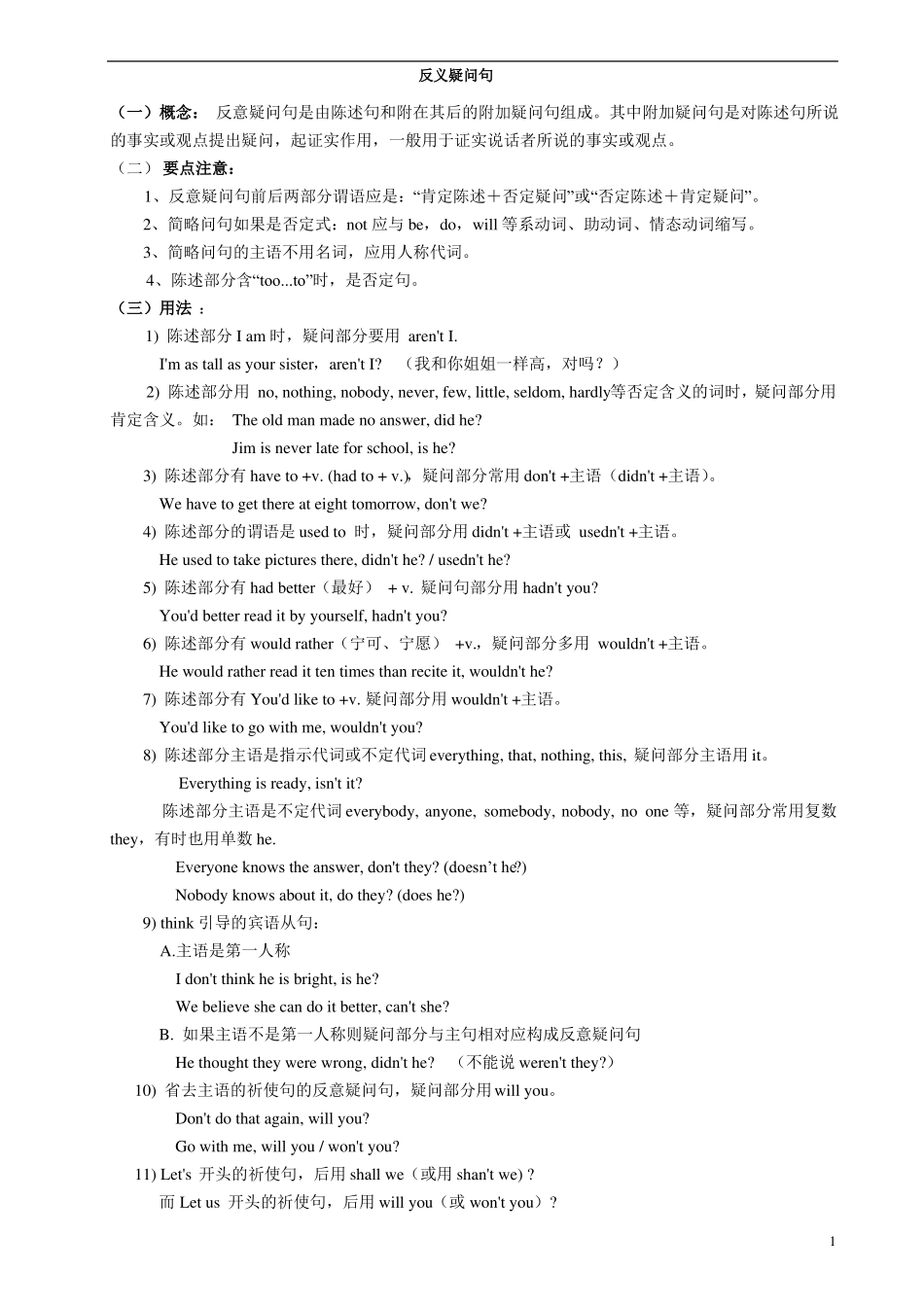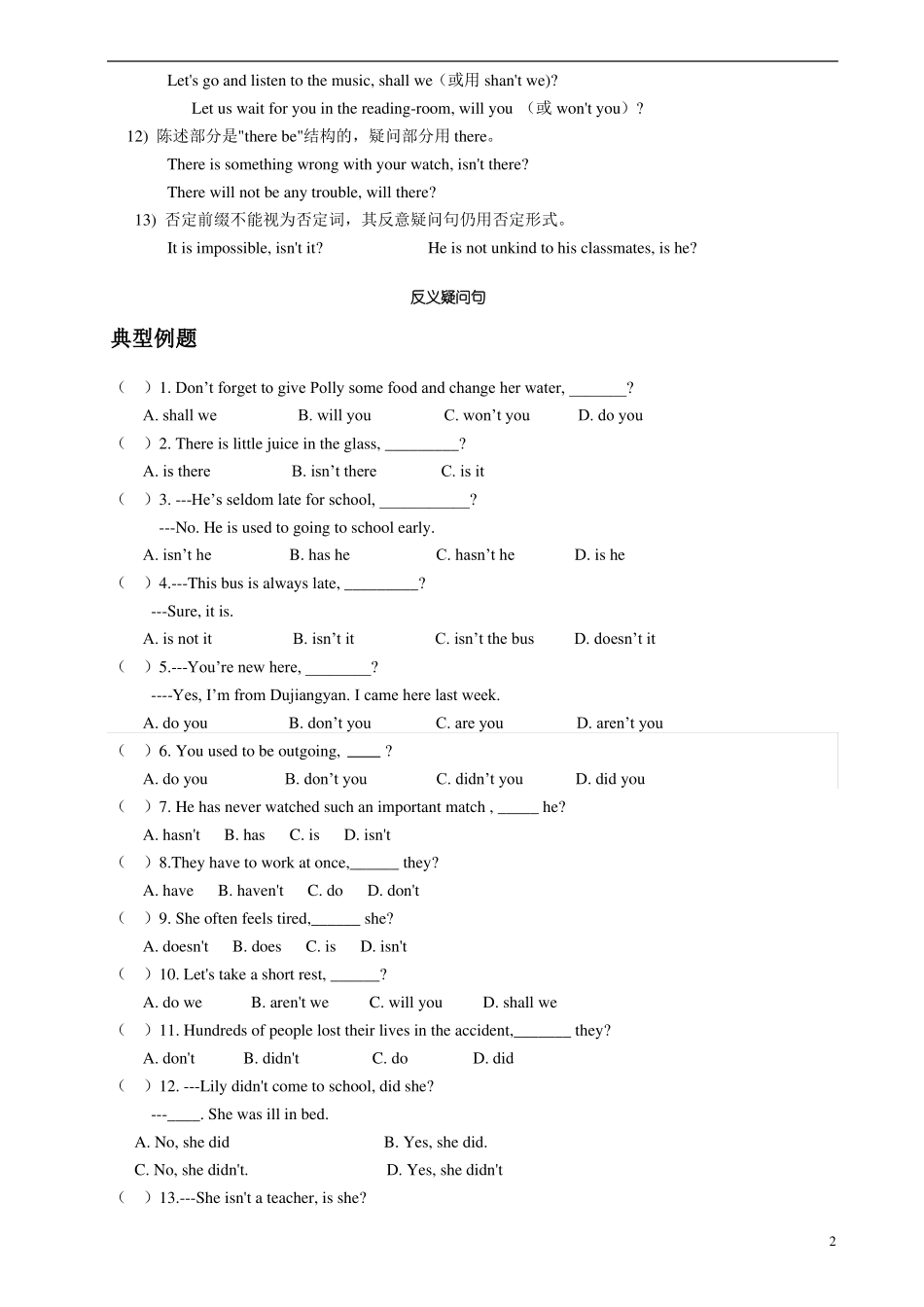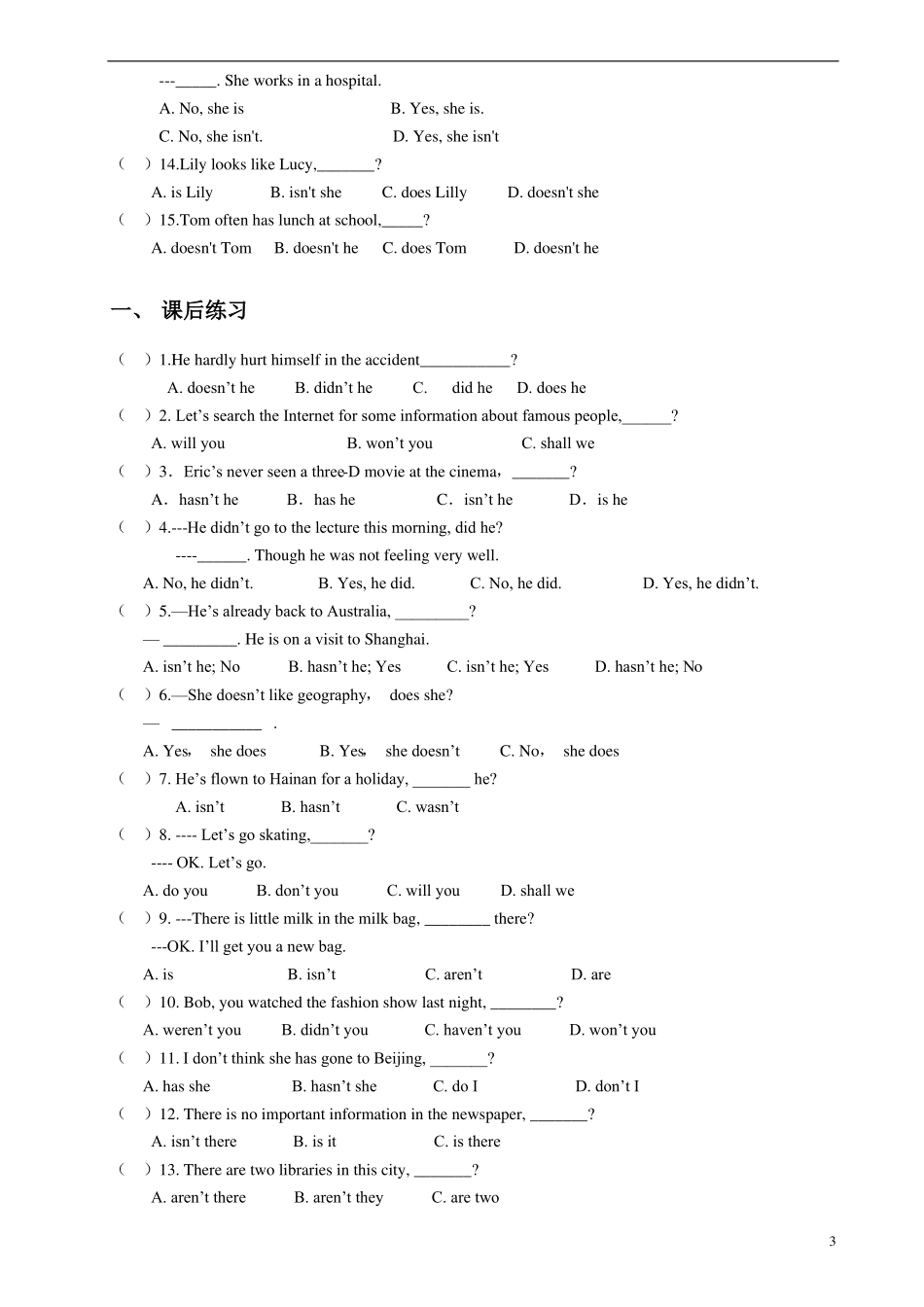反义疑问句(一)概念: 反意疑问句是由陈述句和附在其后的附加疑问句组成。其中附加疑问句是对陈述句所说的事实或观点提出疑问,起证实作用,一般用于证实说话者所说的事实或观点。(二) 要点注意:1、反意疑问句前后两部分谓语应是:“肯定陈述+否定疑问”或“否定陈述+肯定疑问”。2、简略问句如果是否定式:not 应与 be,do,will 等系动词、助动词、情态动词缩写。3、简略问句的主语不用名词,应用人称代词。4、陈述部分含“too...to”时,是否定句。(三)用法 :1) 陈述部分 I am 时,疑问部分要用 aren't I.I'm as tall as your sister,aren't I?(我和你姐姐一样高,对吗?)2) 陈述部分用 no, nothing, nobody, never, few, little, seldom, hardly等否定含义的词时,疑问部分用肯定含义。如: The old man made no answer, did he?Jim is never late for school, is he?3) 陈述部分有 have to +v. (had to + v.),疑问部分常用 don't +主语(didn't +主语)。We have to get there at eight tomorrow, don't we?4) 陈述部分的谓语是 used to 时,疑问部分用 didn't +主语或 usedn't +主语。He used to take pictures there, didn't he? / usedn't he?5) 陈述部分有 had better(最好) + v. 疑问句部分用 hadn't you?You'd better read it by yourself, hadn't you?6) 陈述部分有 would rather(宁可、宁愿) +v.,疑问部分多用 wouldn't +主语。He would rather read it ten times than recite it, wouldn't he?7) 陈述部分有 You'd like to +v. 疑问部分用 wouldn't +主语。You'd like to go with me, wouldn't you?8) 陈述部分主语是指示代词或不定代词 everything, that, nothing, this, 疑问部分主语用 it。Everything is ready, isn't it?陈述部分主语是不定代词 everybody, anyone, somebody, nobody, no one 等,疑问部分常用复数they,有时也用单数 he.Everyone knows the answer, don't they? (doesn’t he?)Nobody knows about it, do they? (does he?)9) think 引导的宾语从句:A.主语是第一人称I don't think he is bright, is he?We believe she can do it better, can't she?B. 如果主语不是第一人称则疑问部分与主句相对应...


